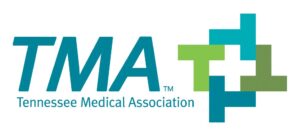| Dear Colleague,
Last September, Rep. Buchson and I lead a group of bipartisan members in seeking feedback for a comprehensive solution that can bring our health care payment system into the 21st Century. We received over 130 responses from stakeholders, health care providers, advocacy organizations, health economists, health finance experts, and others on the current state of MACRA and associated payment mechanisms. The need to reform the Medicare Access and CHIP Reauthorization Act (MACRA) is clear – please join us in sending a letter to leadership emphasizing that we must urgently work together to establish a stable payment mechanism that appropriately pays for health outcomes and ensures that we keep our communities healthy.
If you would like to sign on please use the following Quill link. Please direct any questions to Harsh Patel (harsh.patel@mail.house.gov) or Tyler Mortier (tyler.mortier@mail.house.gov)
DEADLINE: COB Wednesday July 12th.
Cosigners: Bera, Bucshon, Schrier, Blumenauer, Miller-Meeks, Schneider
Thanks,
Rep. Ami Bera, M.D. Rep. Larry Bucshon, M.D.
Member of Congress Member of Congress
BACKGROUND AND PROBLEM:
In 2015, the bipartisan Medicare Access and CHIP Reauthorization Act (MACRA) was signed into law. It replaced the sustainable growth rate (SGR) formula with the Quality Payment Program, consisting of a new Merit-Based Incentive Payment System (MIPS) and processes to adopt Advanced Alternative Payment Models (APMs). MACRA shifted Medicare’s approach to physician payment: paying providers based on quality, value, and the results of care delivered rather than the number of services provided.
Unfortunately, logistical challenges have plagued MACRA almost since its inception. Incentive payments to encourage Medicare providers to participate in Advanced APMs are set to expire at the end of 2022. Furthermore, the thresholds to qualify for APM incentives and future payment adjustments are also scheduled for steep increases under current law. Together, these factors could result in fewer providers participating in value-based care models in the years to come.
Payments made to physicians who participate in value-based care models are affected by the Physician Fee Schedule (PFS) released by the Centers for Medicare and Medicaid Services (CMS) each year. Revisions of this fee schedule have caused certain providers to face significant decreases in their reimbursement. Furthermore, though physician practice costs rise with inflation, the fee schedule is not adjusted accordingly. These factors are adding to physicians’ financial instability and encouraging consolidation of providers.
LETTER TEXT:
Dear Speaker McCarthy and Leader Jefferies:
We write again to bring to your attention a matter of great urgency. Financial uncertainty in our nation’s health care system has been growing for years, and further escalated during the COVID-19 pandemic. Despite spending significantly more on health care than other industrialized countries, the United States continues to face poorer health outcomes and is experiencing a critical shortage of health care providers. A contributing factor is our Medicare payment system, which has failed to maintain levels of provider reimbursement that adequately incentivize high-quality care.
In 2022, lawmakers from both sides of the aisle requested feedback and ideas in search of an innovative, comprehensive solution. Stakeholders, think tanks, academics, physicians, health systems, and others weighed in, demonstrating a tremendous amount of support. We encourage you to consider their input as you determine how Congress will address this issue.
By way of background, in 2015, the bipartisan Medicare Access and CHIP Reauthorization Act (MACRA) was signed into law. It replaced the sustainable growth rate (SGR) formula with the Quality Payment Program, consisting of a new Merit-Based Incentive Payment System (MIPS) and processes to adopt Advanced Alternative Payment Models (APMs). MACRA shifted Medicare’s approach to physician payment, attempting to pay providers based on quality, value, and the results of care delivered rather than the number of services provided.
Unfortunately, logistical challenges have plagued MACRA almost since its inception. Incentive payments to encourage Medicare providers to participate in Advanced APMs are temporary, and underutilized. Furthermore, the thresholds to qualify for APM incentives and future payment adjustments are at risk of steep increases under current law. Together, these factors could result in fewer providers participating in value-based care models in the years to come.
Payments made to physicians who participate in value-based care models are affected by the Physician Fee Schedule (PFS) released by the Centers for Medicare and Medicaid Services (CMS) each year. Revisions of this fee schedule, which is subject to a budget neutrality requirement, have caused certain providers to face significant decreases in their reimbursement. Furthermore, though physician practice costs rise with inflation, the fee schedule is not adjusted accordingly. These factors are adding to physicians’ financial instability and encouraging consolidation of providers.
In order to keep our patients safe, access to care available, and the healthcare workforce strong, Members of Congress must urgently work together to enact MACRA reforms, establishing a stable payment mechanism that appropriately pays for health outcomes. Please work with us to find a solution that ensures we keep our communities healthy. |







